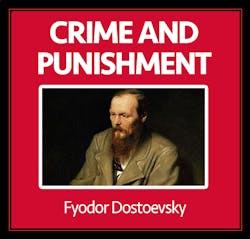Notes from the Underground is a novella by Fyodor Dostoyevsky. Notes is considered by many to be the first existentialist novel. It presents itself as an excerpt from the rambling memoirs of a bitter, isolated, unnamed narrator (generally referred to by critics as the Underground Man) who is a retired civil servant living in St. Petersburg. The first part of the story is told in monologue form, or the underground man's diary, and attacks emerging Western philosophy, especially Nikolay Chernyshevsky's What Is to Be Done?. The second part of the book is called "Àpropos of the Wet Snow", and describes certain events that, it seems, are destroying and sometimes renewing the underground man, who acts as a first person, unreliable narrator.
Dostoyevsky again confronts the concept of free will and constructs a negative argument to validate free will against determinism in the character Kirillov's suicide in his novel The Demons. Notes from Underground marks the starting point of Dostoyevsky's move from psychological and sociological themed novels to novels based on existential and general human experience in crisis. War is described as people's rebellion against the assumption that everything needs to happen for a purpose, because humans do things without purpose, and this is what determines human history. The philosopher Friedrich Nietzsche called Dostoevsky "the only psychologist, incidentally, from whom I had anything to learn."












